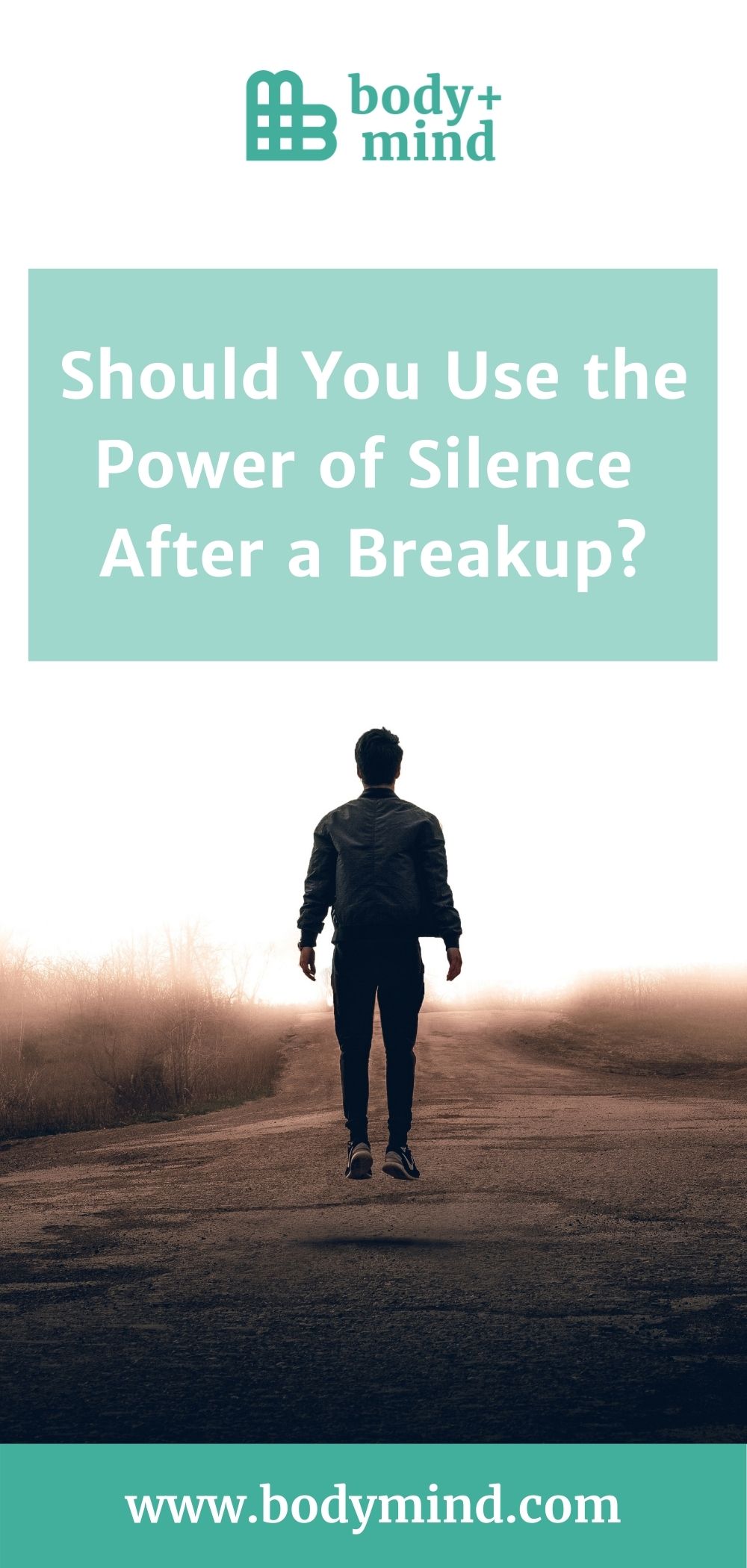
Body + Mind is reader-supported. We may earn an affiliate commission when you buy through some of the links on our site.
Like the old song goes, breaking up is hard to do. If your last relationship ended on a rocky note, you might wonder if you should continue talking with your former partner at all.
Should you use the power of silence after a breakup? It’s never an easy decision to cut off communication with someone who once played a significant role in your life. Here’s a guide to when you should go no-contact and tips for doing so if you decide it’s best.
Deciding to invoke the power of silence involves a protective instinct — you might need to heal after a traumatic breakup. It’s challenging to recover from an abusive situation if every encounter with your ex triggers maladaptive thoughts and beliefs with the resulting behaviors. While you don’t want to blame your ex for “driving you to drink,” for example, no-contact is an option if you reach for the bottle each time they call.
However, before cutting off your ex, spend some time in mindful decision-making so that you do so rationally, rather than as a knee-jerk reaction — or an unconscious attempt to manipulate them. It’s one thing if lack of contact with an abuser preserves your mental health. It’s quite another to think, “If I don’t talk to them long enough, they’ll come crawling back to me.”
If you have a therapist, it’s wise to work through your decision to invoke the power of silence. They can help you identify your underlying motivations, so you don’t end up making a choice that hurts more than helps in the long run.
Unfortunately, not everyone has access to a qualified mental health provider. If you are among those who don’t, ask yourself the following questions before severing the communication cord.
You’ve decided that it’s best to use the power of silence with your ex. Here are four tips for keeping your resolve while you heal.
Loneliness affects millions of Americans, but the fact that you aren’t alone hardly comforts you when tossing and turning at 3 a.m. You need a reliable support network while you heal.
Reach out to friends you haven’t spoken with in some time. Join an online community such as a book club that interests you. Say yes to those virtual happy hour invitations from your colleagues.
You won’t have time to miss your ex if you keep your schedule full. Have you always dreamed of going back to school? Maybe now is the time to sign up for online classes. Do you love playing with puppies, but your landlord doesn’t allow dogs? Become a volunteer walker for a local homeless pet shelter.
If you escaped a narcissistic ex, be wary of what psychotherapist Ross Rossberg dubs the induced conversation. Your ex knows your vulnerabilities and will often reach out when they suspect you feel lowest to try to sucker you back into a relationship. Make a list of things you can do besides texting them back if they do.
In a perfect world, everyone who survived an abusive relationship would have access to quality mental health services. If you have the means, investigate getting a therapist. With the advent of telemedicine and mental health apps, you might find a resource you can afford.
It’s challenging to decide if the power of silence is your best course of action following a breakup. The tips above can help you move forward.

Your email address will only be used to send you our newsletter, and at any time you may unsubscribe. For more information, see our Privacy Policy.